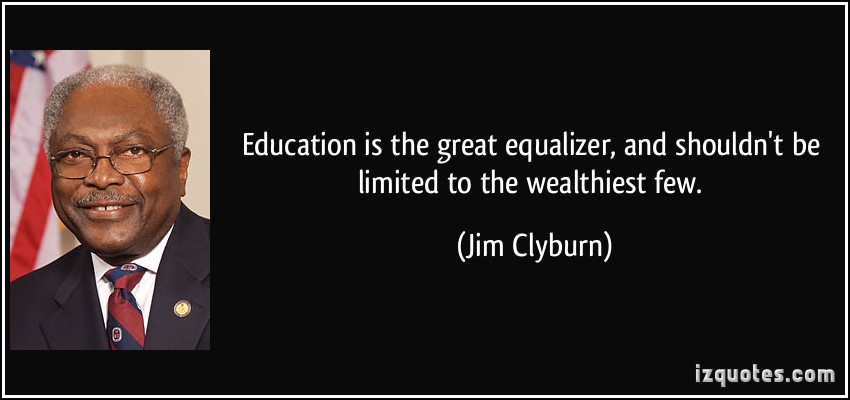
Dear Commons Community,
Thomas B. Edsall has a guest essay in today’s New York Times exploring whether education is no longer the “great equalizer.” He refers to the ongoing debate over what kind of investments in human capital — roughly the knowledge, skills, habits, abilities, experience, intelligence, training, judgment, creativity and wisdom possessed by an individual — contribute most to productivity and life satisfaction. He questions the affects of education. Here is an excerpt.
“Is education no longer “a great equalizer of the conditions of men,” as Horace Mann declared in 1848, but instead a great divider? Can the Biden administration’s efforts to distribute cash benefits to the working class and the poor produce sustained improvements in the lives of those on the bottom tiers of income and wealth — or would a substantial investment in children’s training and enrichment programs at a very early age produce more consistent and permanent results?
Take the case of education. On this score — if the assumption is “the more education, the better” — then the United States looks pretty good.
From 1976 to 2016 the white high school completion rate rose from 86.4 percent to 94.5 percent, the Black completion rate from 73.5 percent to 92.2 percent and the Hispanic completion rate rose from 60.3 percent to 89.1 percent. The graduation rate of whites entering four-year colleges from 1996 to 2012 rose from 33.7 to 43.7 percent, for African Americans it rose from 19.5 to 23.8 percent and for Hispanics it rose from 22.8 to 34.1 percent.
But these very gains appear to have also contributed to the widening disparity in income between those with different levels of academic attainment, in part because of the very different rates of income growth for men and women with high school degrees, college degrees and graduate or professional degrees.
Education lifts all boats, but not by equal amounts.
David Autor, an economist at M.I.T., together with the Harvard economists Claudia Goldin and Lawrence Katz, tackled this issue in a paper last year, “Extending the Race Between Education and Technology,” asking: “How much of the overall rise in wage inequality since 1980 can be attributed to the large increase in educational wage differentials?”
Their answer:
Returns to a year of K-12 schooling show little change since 1980. But returns to a year of college rose by 6.5 log points, from 0.076 in 1980 to 0.126 in 2000 to 0.141 in 2017. The returns to a year of post-college (graduate and professional) rose by a whopping 10.9 log points, from 0.067 in 1980 to 0.131 in 2000 and to 0.176 in 2017.
I asked Autor to translate that data into language understandable to the layperson, and he wrote back:
There has been almost no increase in the increment to individual earnings for each year of schooling between K and 12 since 1980. It was roughly 6 percentage points per year in 1980, and it still is. The earnings increment for a B.A. has risen from 30.4 percent in 1980 to 50.4 percent in 2000 to 56.4 percent in 2017. The gain to a four-year graduate degree (a Ph.D., for example, but an M.D., J.D., or perhaps even an M.B.A.) relative to high school was approximately 57 percent in 1980, rising to 127 percent in 2017.
These differences result in large part because ever greater levels of skill — critical thinking, problem-solving, originality, strategizing — are needed in a knowledge-based society.
“The idea of a race between education and technology goes back to the Nobel Laureate Jan Tinbergen, who posited that technological change is continually raising skill requirements while education’s job is to supply those rising skill levels,” Autor wrote in explaining the gains for those with higher levels of income. “If technology ‘gets ahead’ of education, the skill premium will tend to rise.”
But something more homely may also be relevant. Several researchers argue that parenting style contributes to where a child ends up in life.
cost of failing to ascend the education ladder rise in tandem, scholars find that adults are adopting differing parental styles — a crucial form of investment in the human capital of their children — and these differing styles appear to be further entrenching inequality.
Such key factors as the level of inequality, the degree to which higher education is rewarded and the strength of the welfare state are shaping parental strategies in raising children.”
The entire essay is well-done and worth a read!
Tony


